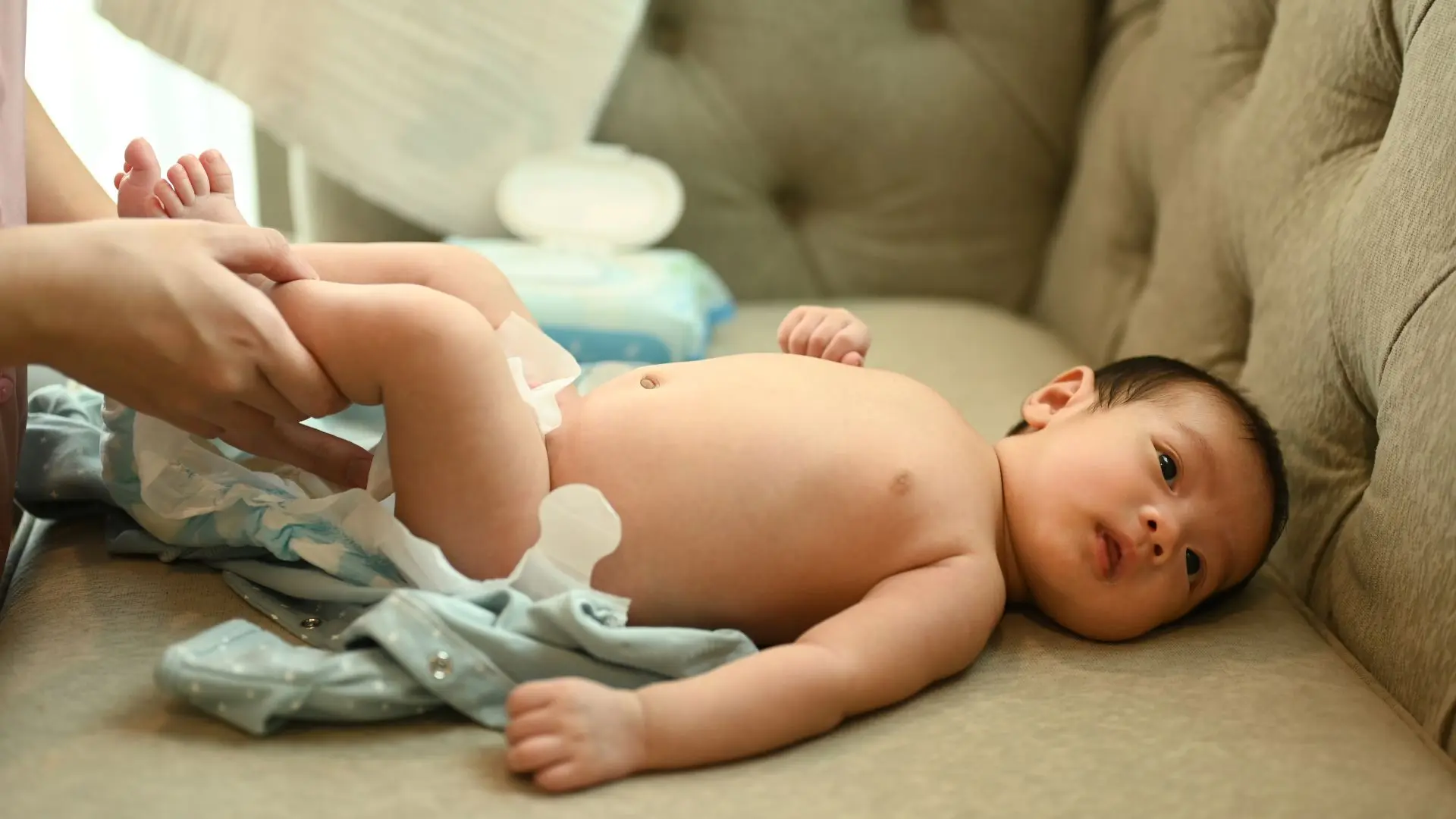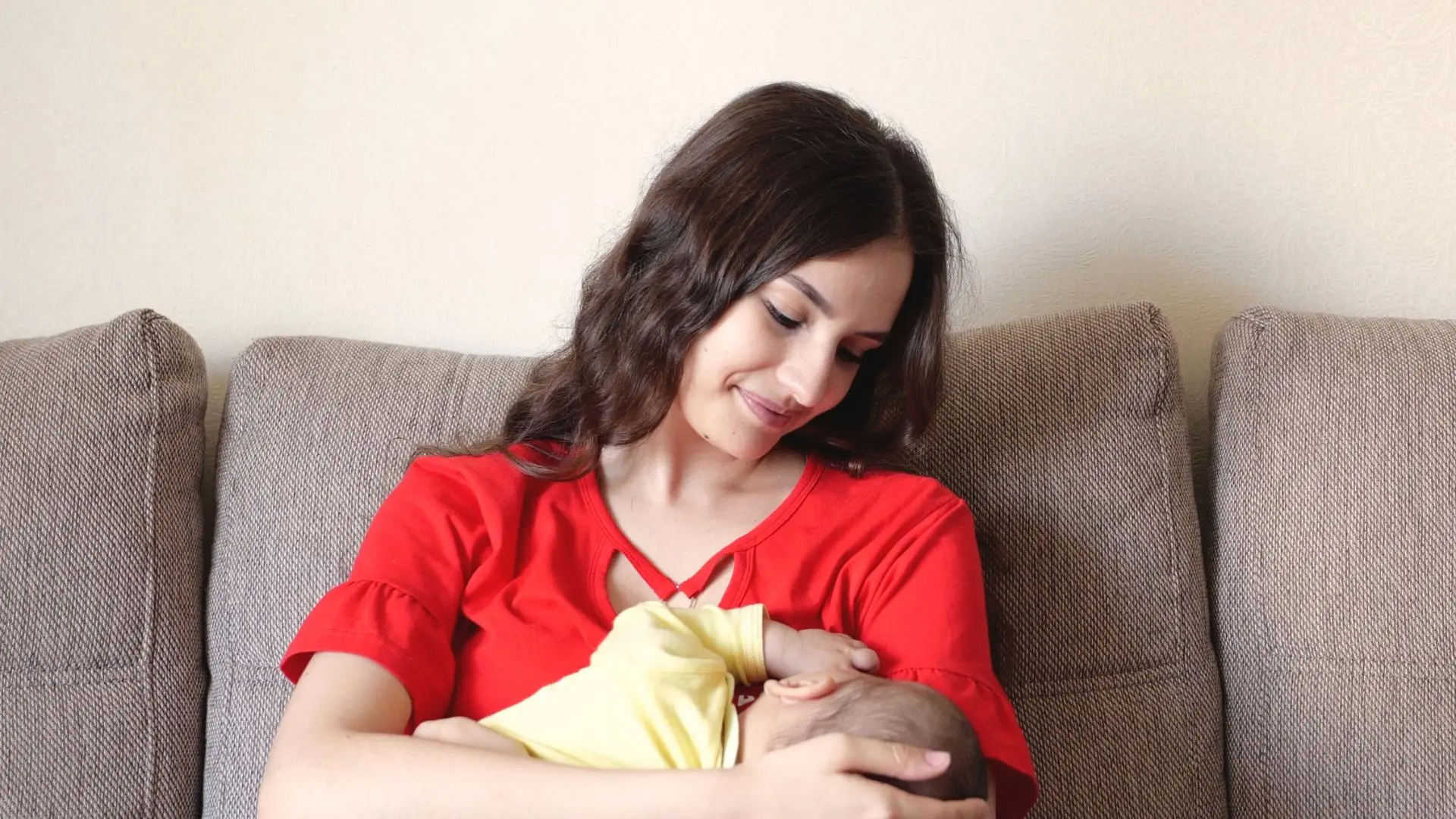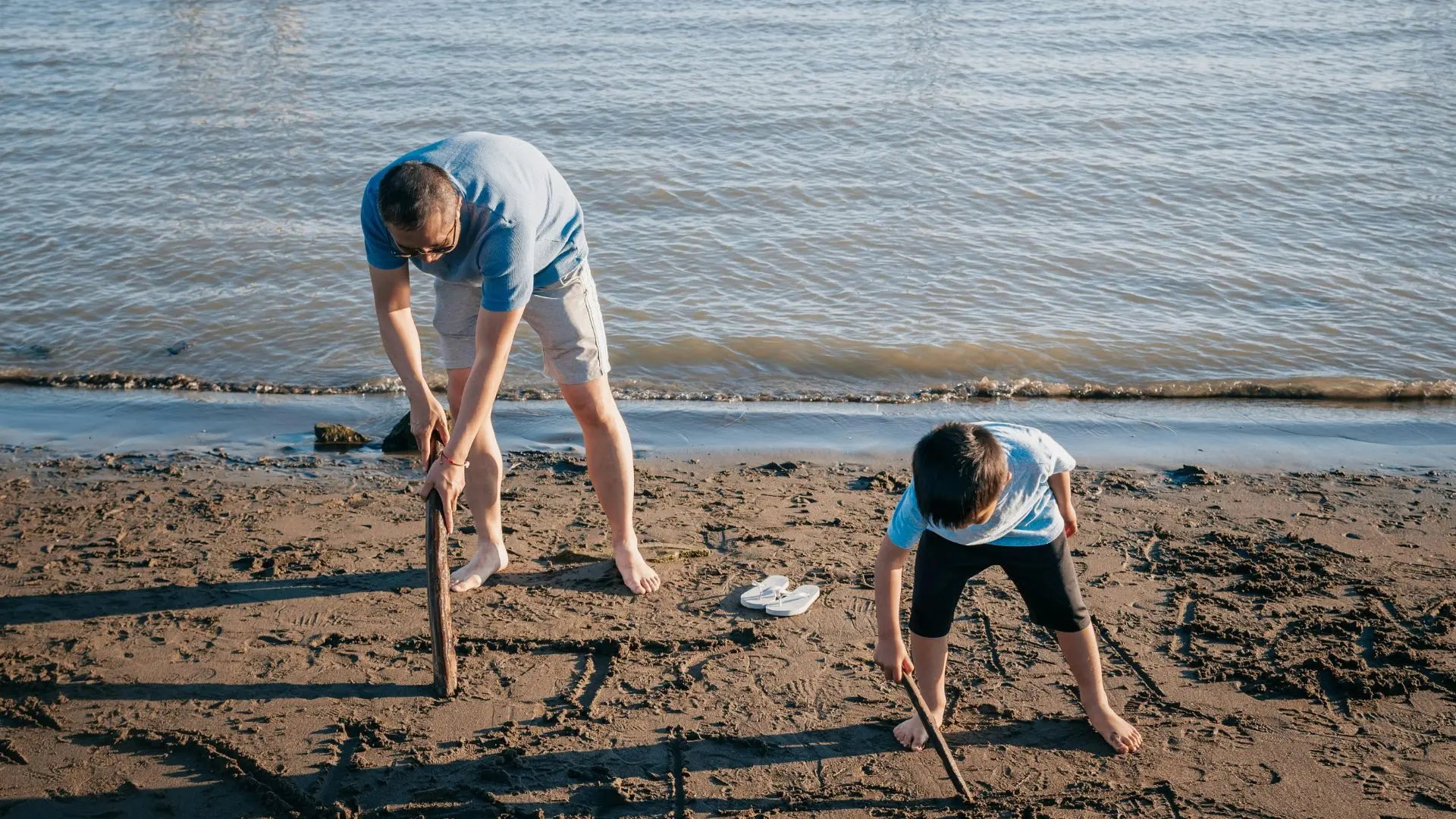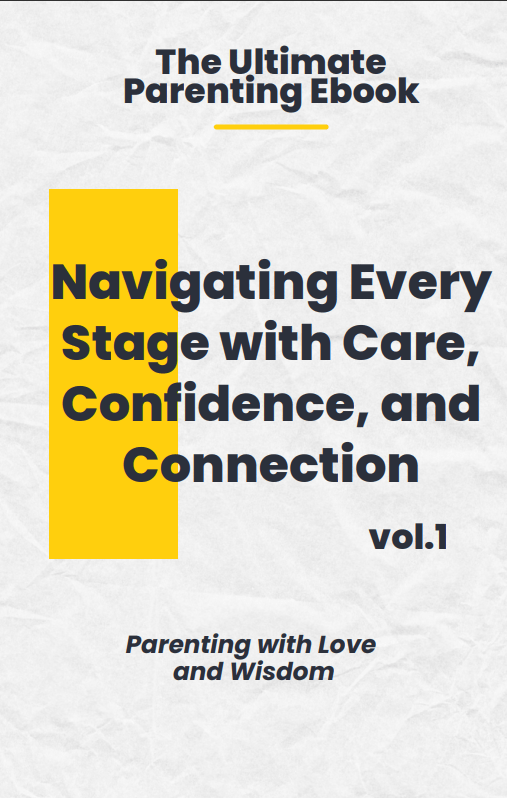Baby diarrhea can be alarming. Discover how to manage it with effective treatments, know the warning signs, and keep your baby hydrated and healthy.
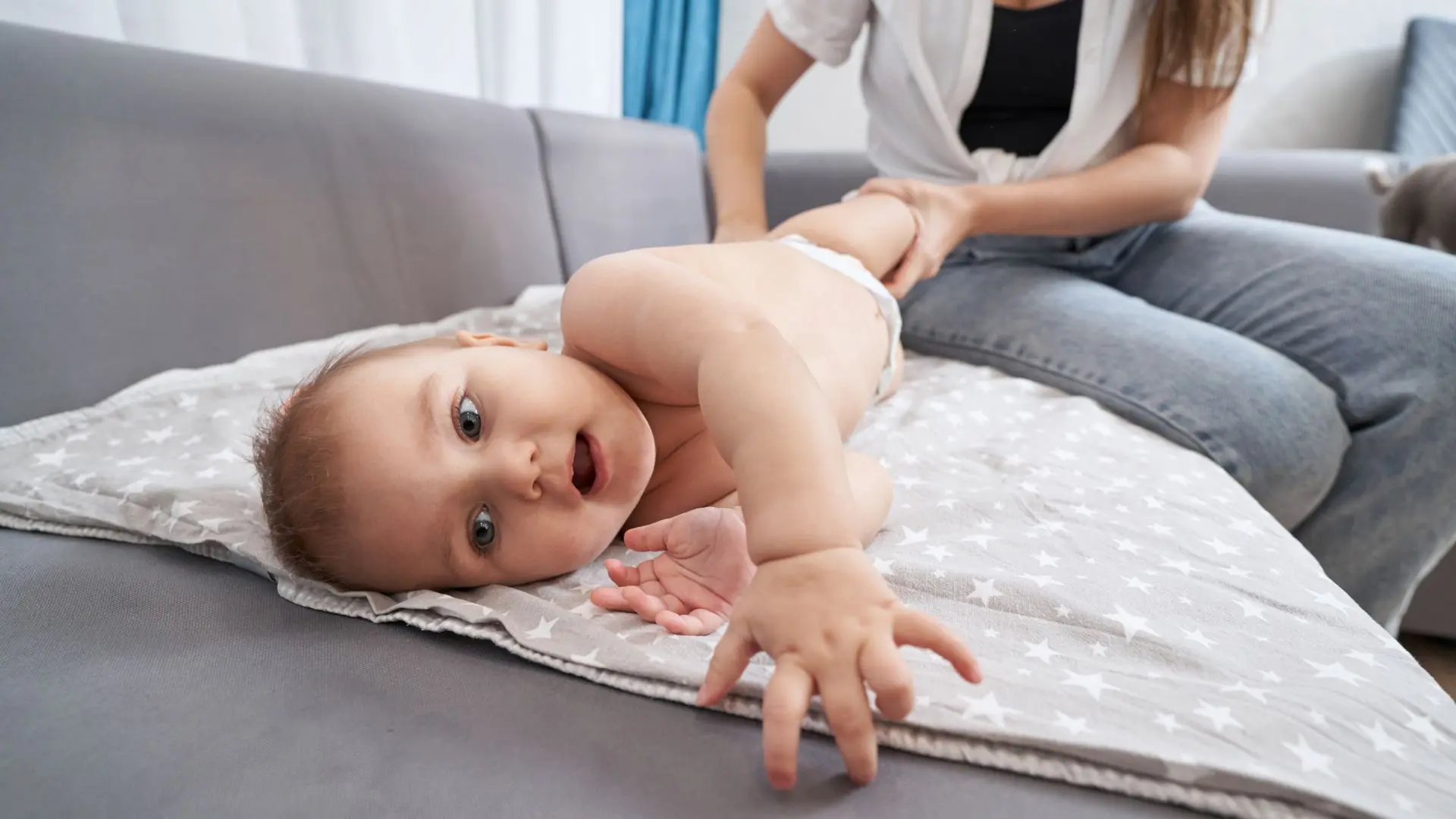
Nothing is more concerning than seeing your baby in discomfort, especially when it comes to digestive issues. Baby diarrhea is a common issue that can happen at any age, from newborns to toddlers. While it’s usually not serious, it can be alarming for parents when their baby’s bowel movements suddenly change.
Understanding what’s normal, what’s not, and how to respond can help alleviate some of the anxiety that comes with seeing your baby suffer from baby diarrhea.
In This Blog
ToggleWhat Does Baby Diarrhea Look Like?
Knowing what baby diarrhea looks like is crucial for identifying when something might be wrong. Normal baby poop can vary widely in appearance based on age, diet, and feeding habits. However, baby diarrhea differs in several key ways.
Increased frequency: Diarrhea in babies often presents as much more frequent bowel movements than usual. While it’s normal for infants to poop multiple times a day, diarrhea tends to be continuous or significantly more frequent than usual.
Watery consistency: Normal baby stool can be soft, especially in breastfed infants, but baby diarrhea is typically much looser, runnier, and sometimes even watery. You might notice that it soaks into the diaper more than typical solid or semi-solid poop.
Unusual color: Baby diarrhea can range in color from yellow to green or even brown, depending on the cause. If the diarrhea is green, it could indicate that food is passing through the digestive tract too quickly, or it may point to a diet-related cause. Persistent or unusual colors should be monitored.
Odor changes: While all poop smells, baby diarrhea often has a much stronger and more pungent odor than usual.
Mucus or blood: If you notice mucus or blood in your baby’s stool, this can be a sign that something more serious is at play. Mucus often looks like a slimy substance mixed with the stool, while blood may appear as bright red streaks or darker spots.
What Are the Common Causes of Baby Diarrhea?
There are numerous potential causes of baby diarrhea, ranging from mild to more serious conditions. Understanding the possible triggers can help you manage the situation better and determine when it’s time to consult a doctor.
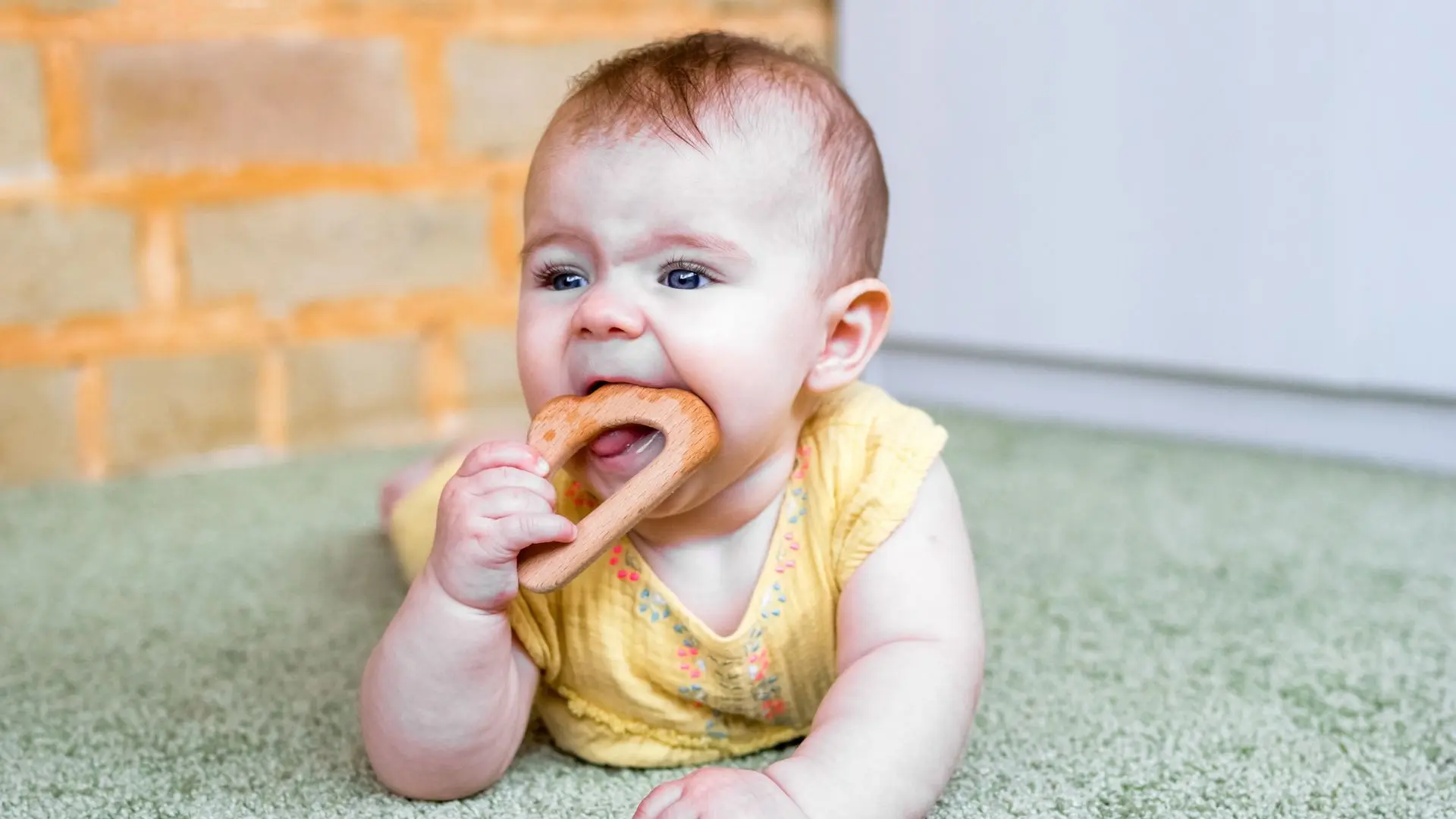
Infections: Infections are one of the most common causes of baby diarrhea. These can include:
- Viral infections: Viruses like rotavirus, norovirus, and adenovirus are common culprits. These infections usually present with vomiting, fever, and diarrhea.
- Bacterial infections: Bacteria such as salmonella, E. coli, and campylobacter can cause severe diarrhea. These cases are often accompanied by high fever and sometimes blood in the stool.
- Parasitic infections: Parasites like giardia can infect the intestines and lead to persistent diarrhea, cramping, and bloating.
Dietary Causes: What your baby eats can also contribute to baby diarrhea:
- Food intolerances and sensitivities: Some babies may have difficulty digesting certain foods, such as lactose or gluten, which can lead to diarrhea.
- Introduction of new foods: When you start introducing solid foods to your baby’s diet, their digestive system may react with baby diarrhea. Common culprits include fruit juices, dairy, and high-fiber foods.
- Overfeeding: Sometimes feeding your baby too much at once or introducing too many new foods simultaneously can lead to digestive upset and diarrhea.
Medications: Certain medications, particularly antibiotics, can cause baby diarrhea as a side effect. Antibiotics often disrupt the natural balance of bacteria in the gut, leading to loose stools.
Teething: While teething is not a direct cause of diarrhea, many parents notice looser stools during this time. This could be due to the excess saliva produced during teething or other related changes.
Food Allergies: Allergic reactions to foods like cow’s milk, soy, or eggs can cause baby diarrhea, often accompanied by other symptoms like vomiting, rashes, or breathing difficulties.
Other Factors:
- Environmental changes: Stress or changes in the baby’s routine, such as travel or daycare, can sometimes trigger baby diarrhea.
- Changes in feeding habits: Sudden changes, like switching from breast milk to formula or introducing new solid foods, can temporarily cause diarrhea as the baby adjusts.
What Is the Treatment for Baby Diarrhea?
When your baby is experiencing diarrhea, there are several steps you can take to help them feel better and ensure they stay healthy.
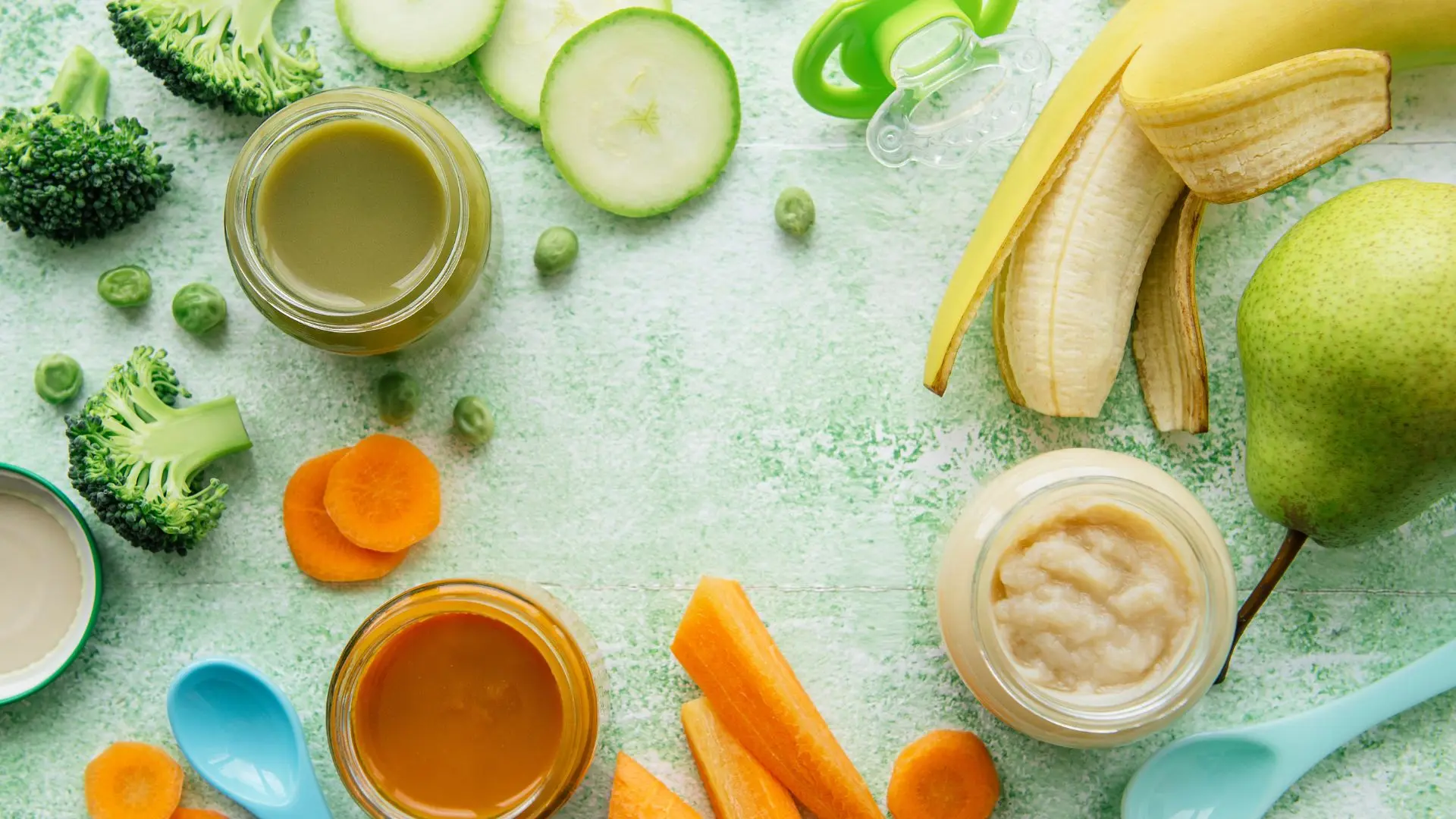
Hydration: One of the biggest risks of baby diarrhea is dehydration, especially in younger babies. Keep an eye on their wet diapers and ensure they are staying hydrated.
- For breastfeeding babies, continue breastfeeding frequently.
- For formula-fed babies, you may consider switching to a lactose-free or gentler formula if the diarrhea persists.
- Offer an oral rehydration solution (ORS) if the diarrhea is severe or if your pediatrician recommends it.
Diet Adjustments: Sometimes, changes in diet can help alleviate baby diarrhea.
- Continue breastfeeding or formula feeding, but avoid overfeeding.
- For older babies on solids, offer bland, easy-to-digest foods like bananas, rice, applesauce, and toast (the BRAT diet).
- Avoid giving sugary drinks like juice, as they can worsen diarrhea.
Monitoring: Track your baby’s bowel movements, noting the frequency, consistency, and any other symptoms like vomiting or fever. This information can help your pediatrician determine the cause of the diarrhea and recommend appropriate treatment.
Probiotics: In some cases, your pediatrician might recommend giving your baby probiotics, which can help restore the healthy bacteria in their gut, especially if they have recently been on antibiotics.
Comfort Measures: Baby diarrhea can cause discomfort, so consider:
- Using diaper cream to prevent and treat diaper rash caused by frequent, watery stools.
- Keeping your baby clean and dry by changing diapers frequently.
What are the Signs that Baby Diarrhea Is Serious?
Most cases of baby diarrhea are mild and resolve on their own, but there are some signs that indicate you should seek medical attention.
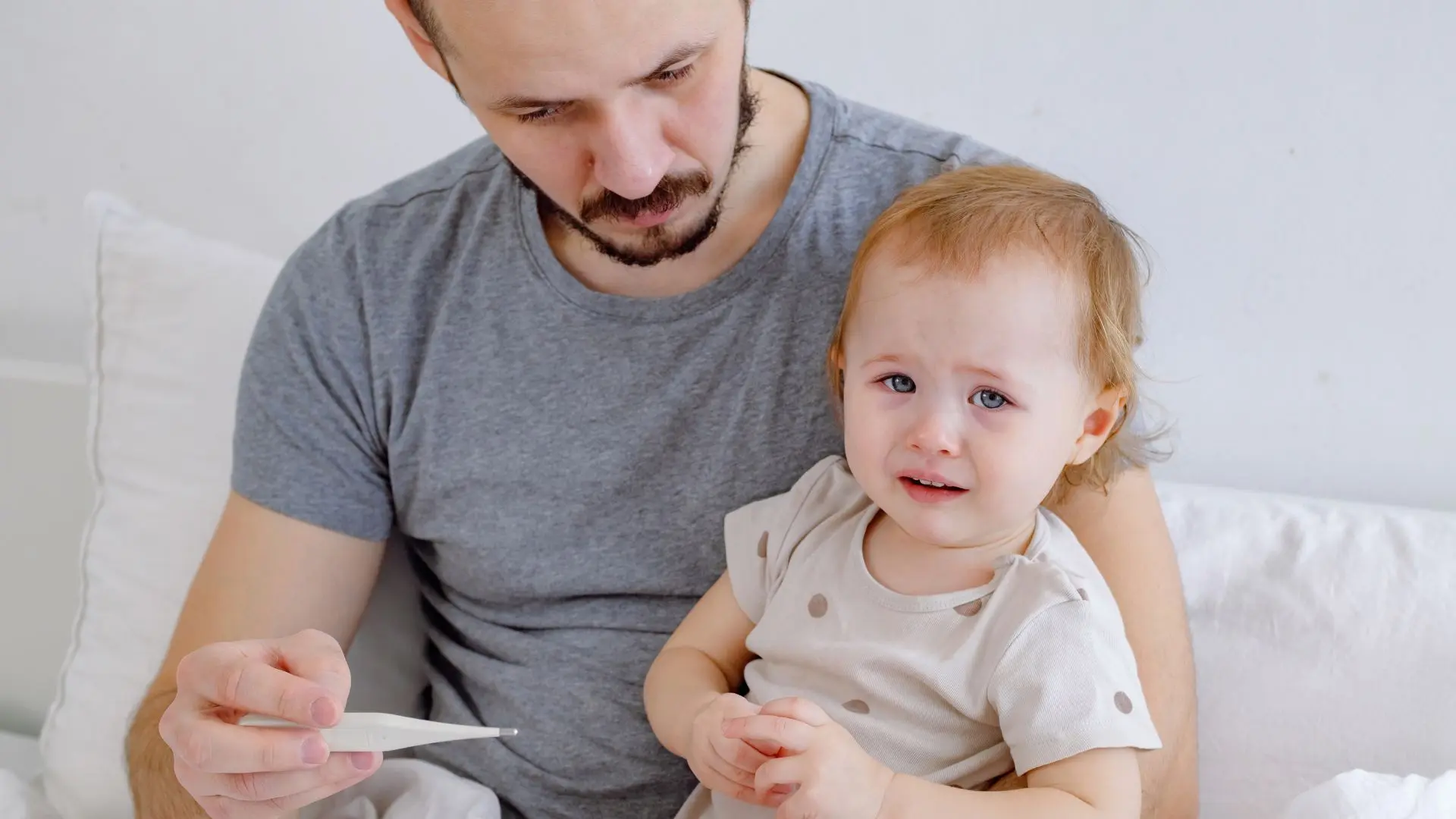
Severe Dehydration: Dehydration is the biggest risk with baby diarrhea. Look out for the following signs:
- Fewer wet diapers (no urine for 6 hours or more)
- Dry mouth and lips
- No tears when crying
- Sunken eyes or fontanelle (the soft spot on the head)
- Lethargy or unresponsiveness
High Fever: If your baby has a fever along with diarrhea, it could indicate a more serious infection:
- For babies under 3 months, any fever over 100.4°F (38°C) should prompt a call to your doctor.
- For older babies, a fever over 102°F (38.9°C) should be evaluated by a healthcare professional.
Blood or Mucus in Stool: If you notice blood or mucus in your baby’s diarrhea, this can be a sign of a bacterial infection, an allergy, or gastrointestinal inflammation. It’s important to consult your pediatrician for further evaluation.
Persistent Diarrhea: If your baby’s diarrhea lasts more than a few days, it’s time to consult your pediatrician. Prolonged diarrhea can lead to dehydration and indicate an underlying issue that needs to be addressed.
Vomiting: Vomiting along with diarrhea can increase the risk of dehydration and may suggest a more serious infection or illness. Seek medical attention if your baby is vomiting frequently or cannot keep fluids down.
Other Concerning Symptoms:
- Refusal to eat or drink
- Unusual irritability or extreme fussiness
- Rash, especially if accompanied by diarrhea
- Unexplained weight loss
How to Prevent Baby Diarrhea
While you can’t always prevent baby diarrhea, there are some steps you can take to reduce the likelihood of it occurring.
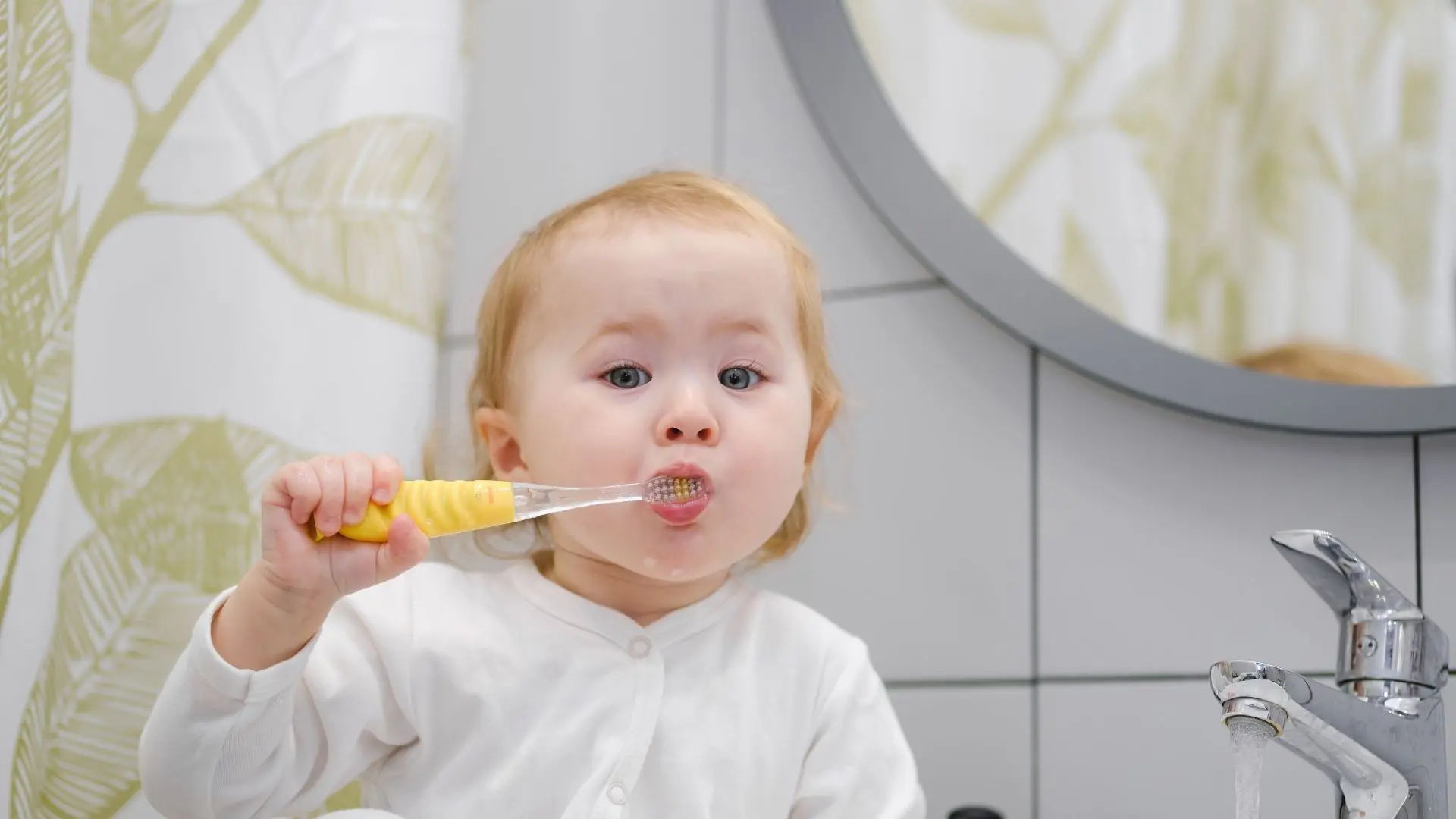
Good Hygiene Practices: Preventing the spread of germs is key to avoiding infections that cause diarrhea.
- Wash your hands thoroughly before feeding your baby and after diaper changes.
- Ensure that bottles, pacifiers, and feeding utensils are properly cleaned and sterilized.
Safe Food Handling: Once your baby starts solids, make sure you’re introducing foods safely and gradually.
- Avoid giving your baby undercooked or contaminated food.
- Ensure that fruits and vegetables are thoroughly washed.
Vaccinations: Ensure your baby is up-to-date on their vaccinations, particularly the rotavirus vaccine, which helps prevent one of the leading causes of severe baby diarrhea.
Hydration and Nutrition: Ensure your baby stays hydrated and well-nourished, especially when introducing new foods.
- Gradually introduce new items to their diet, watching for any signs of baby diarrhea or digestive issues.
- Avoid foods that may be too harsh on your baby’s developing digestive system, and always consult your pediatrician before making significant changes to their diet.
Conclusion
Baby diarrhea is a common condition that most parents will encounter at some point during their child’s infancy or toddlerhood. While it can be concerning to see your baby uncomfortable or experiencing frequent bowel movements, most cases of baby diarrhea are mild and can be managed at home with proper care.
Key steps include ensuring hydration, continuing regular feedings, monitoring for more serious symptoms, and practicing good hygiene to prevent future infections. As always, if you’re unsure or if your baby shows any signs of dehydration, high fever, or persistent diarrhea, don’t hesitate to contact your pediatrician for guidance.
By staying informed and knowing when to worry, you can help your baby recover from baby diarrhea quickly and keep them healthy and happy.
You may also be interested in : Baby Poop with Mucus Explained: Causes, Treatment, And When to Worry
FAQs
1. What does baby diarrhea look like?
Baby diarrhea typically appears as watery, loose, and sometimes greenish or yellowish stools. It may also have a foul odor and frequent bowel movements are common.
2. What are the common causes of baby diarrhea?
Common causes include viral or bacterial infections, food allergies, teething, antibiotics, and changes in diet. Some babies may also have diarrhea due to digestive sensitivities.
3. Can teething cause baby diarrhea?
Yes, teething can sometimes cause mild baby diarrhea. Increased saliva production during teething may cause changes in the digestive system, leading to looser stools.
4. How long does baby diarrhea typically last?
Most cases of baby diarrhea last between one and three days. If diarrhea persists for more than a few days, it’s essential to consult a pediatrician to rule out underlying issues.
5. Is baby diarrhea dangerous?
Baby diarrhea can lead to dehydration, which is dangerous for infants. Watch for signs like dry mouth, few wet diapers, lethargy, or sunken eyes, and consult a doctor if symptoms appear.
6. Can breastfeeding prevent baby diarrhea?
Breastfeeding provides antibodies that can protect against infections and reduce the risk of baby diarrhea. It also helps keep babies hydrated during mild bouts of diarrhea.
7. What foods should I avoid giving my baby during diarrhea?
Avoid dairy products, sugary foods, and fruit juices during baby diarrhea. These can worsen the condition. Instead, stick to easy-to-digest foods like bananas, rice, applesauce, and toast.
8. Should I continue feeding my baby if they have diarrhea?
Yes, continue feeding your baby even if they have diarrhea. Breastfeeding or formula feeding provides essential nutrients and hydration. For older babies, offer bland foods like rice or applesauce.
9. Can baby diarrhea be a sign of food allergies?
Yes, baby diarrhea can be a sign of a food allergy, especially if accompanied by other symptoms like skin rashes or vomiting. Common culprits include cow’s milk, soy, and gluten.
10. Can antibiotics cause baby diarrhea?
Yes, antibiotics can disrupt the natural balance of bacteria in the gut, leading to baby diarrhea. Probiotics may help restore balance, but consult your pediatrician first.
11. How can I prevent diaper rash during baby diarrhea?
Change diapers frequently, keep your baby’s bottom clean and dry, and apply a diaper rash cream with zinc oxide to protect the skin from irritation during baby diarrhea.
12. Should I give my baby water during diarrhea?
For babies under six months old, it’s better to offer more breast milk or formula. Older babies can have small amounts of water or an oral rehydration solution during baby diarrhea.
13. Can probiotics help with baby diarrhea?
Probiotics can help restore healthy gut bacteria after baby diarrhea caused by antibiotics or infections. Always consult your pediatrician before giving probiotics to your baby.
14. What signs of dehydration should I look for during baby diarrhea?
Signs of dehydration include fewer wet diapers, dry lips and mouth, sunken eyes, lethargy, and a sunken soft spot on the head. If you notice these, consult your doctor immediately.
15. When should I call the doctor about baby diarrhea?
Call your doctor if baby diarrhea lasts more than a few days, is accompanied by a high fever, contains blood, or if your baby shows signs of dehydration.
16. Is baby diarrhea contagious?
Baby diarrhea caused by viral or bacterial infections can be contagious. Practice good hygiene, like frequent hand washing, to prevent the spread to others.
17. Can baby diarrhea cause weight loss?
Prolonged baby diarrhea can lead to dehydration and temporary weight loss. Ensure your baby is properly hydrated and nourished to prevent any significant health impacts.
18. Can I give my baby medication for diarrhea?
Over-the-counter anti-diarrheal medications are generally not safe for babies. Always consult your pediatrician before giving any medication to treat baby diarrhea.
19. What are some home remedies for baby diarrhea?
Keep your baby hydrated with breast milk, formula, or oral rehydration solutions. For older babies, bland foods like bananas, rice, applesauce, and toast can help firm up stools.
20. How can I help my baby recover from diarrhea?
Focus on hydration, feed them bland foods, and monitor for signs of dehydration. Keeping a close eye on your baby’s overall health will help them recover quickly from baby diarrhea.

